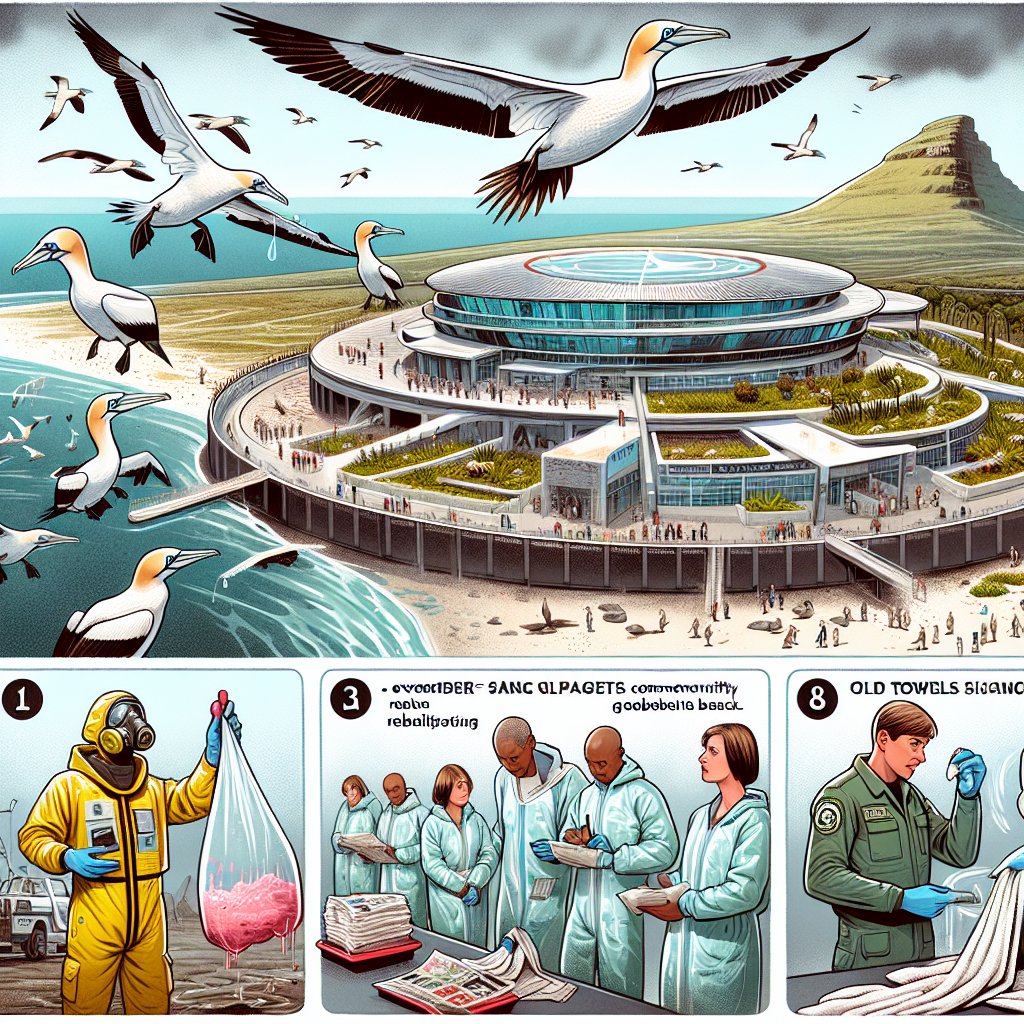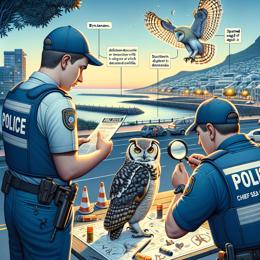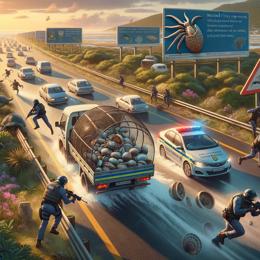Image created by AI
Over 100 Cape Gannets Affected by Suspected Fish Oil Incident at Bird Island
Bird Island has become the center of attention for wildlife conservationists once again as the Southern African Foundation for the Conservation of Coastal Birds (SANCCOB) has come to the aid of over 100 Cape gannets found covered in suspected fish oil. The alarming discovery marks the third such incident, highlighting a troubling pattern of environmental hazards affecting local bird populations.
The birds displayed signs of distress, were heavily oiled, and many were underweight when spotted by a vigilant ranger on Sunday. With immediate action taken by SANCCOB, working closely with rangers from SANParks, a substantial group of the most compromised birds were rescued and are currently undergoing treatment in Gqeberha.
The rehabilitation process is painstaking yet vital. Rescued gannets are first stabilized, a precursor to the meticulous washing regimen needed to strip the oil from their feathers. Afterward follows a rehabilitation period aimed at restoring their natural waterproofing and ensuring they attain a healthy weight before being released into the wild.
A non-toxic element as the suspected fish oil may be, its effects are destructive. The oil compromises the delicate microstructure of the birds’ feathers, stripping them of their waterproofing properties. Consequently, cold water can penetrate their skin, leaving the birds unable to regulate their body temperature – a potentially fatal condition.
This incident has not been reported at any other colony, raising questions and concerns specific to Bird Island. SANCCOB has alerted the South African Maritime Safety Authority (SAMSA) and all relevant authorities, emphasizing the need for investigation and action.
The first incidents, similar in nature, were reported in January 2023 and 2024, but the regularity of these events has yet to lead to a permanent solution or preventative measures. The Cape gannet, an endemic species to South Africa and Namibia, nests in just six colonies worldwide, with their population status garnering close attention from the conservation community.
In a call to action, SANCCOB in Gqeberha has reached out to the community, asking volunteers to step up and donate old towels and newspapers in aid of the rescue efforts. These seemingly small contributions can play a significant role in supporting the recovery of affected wildlife.
As the situation unfolds, SANCCOB and its partners remain vigilant, not only treating current impacts but also striving to safeguard these birds’ futures against repeating environmental threats. The preservation of the Cape gannet, an intrinsic part of our global natural heritage, calls for an immediate and collective response.










